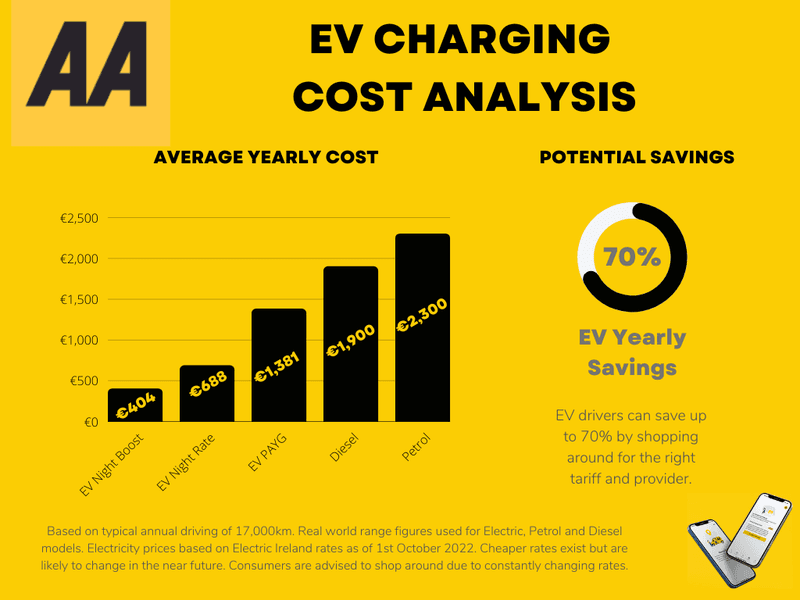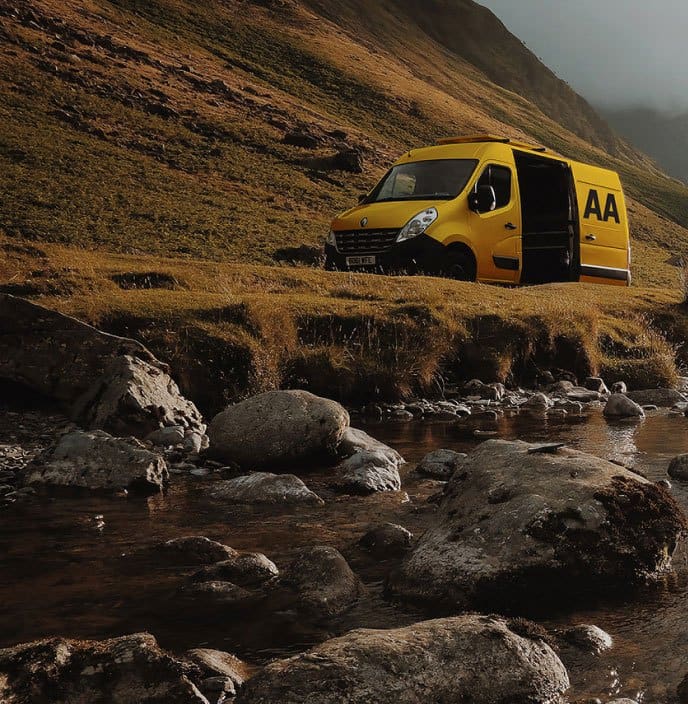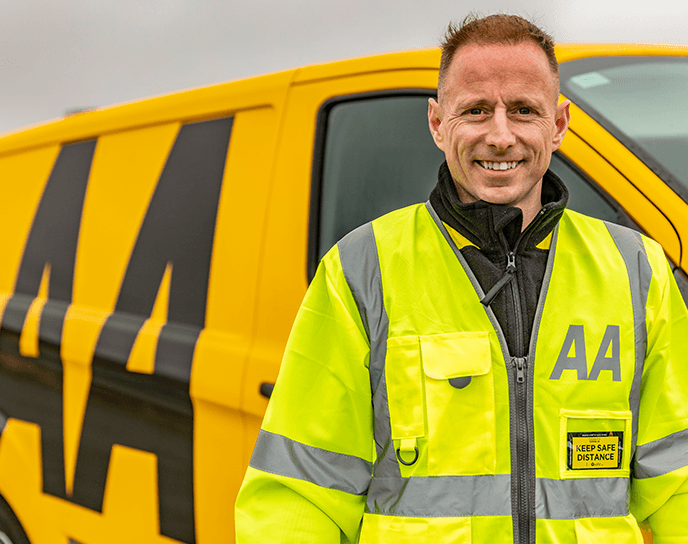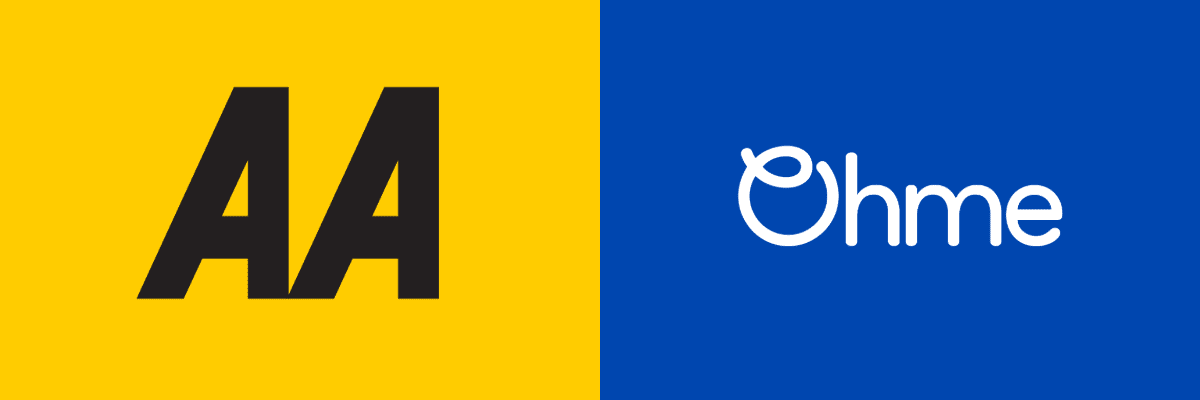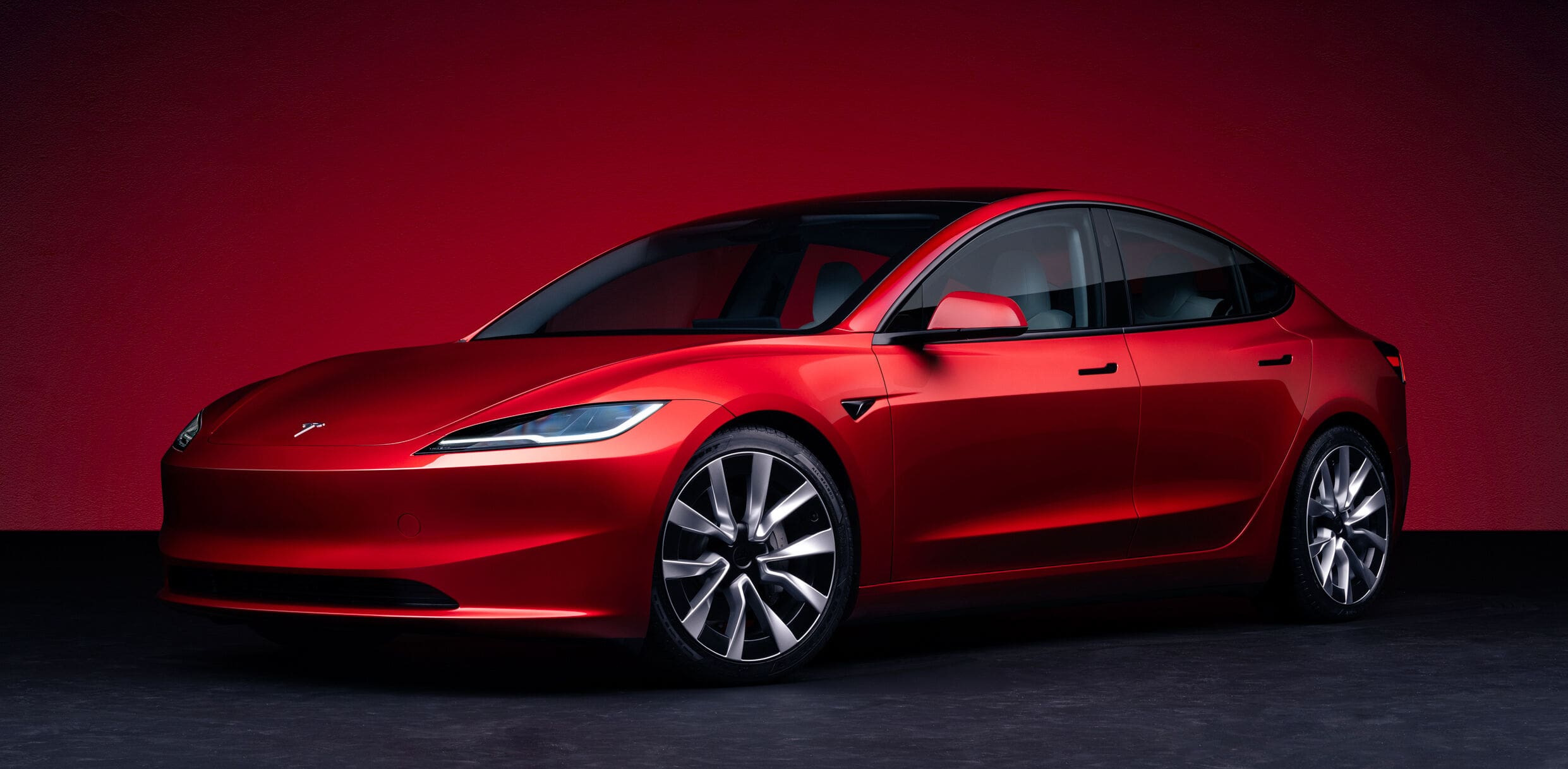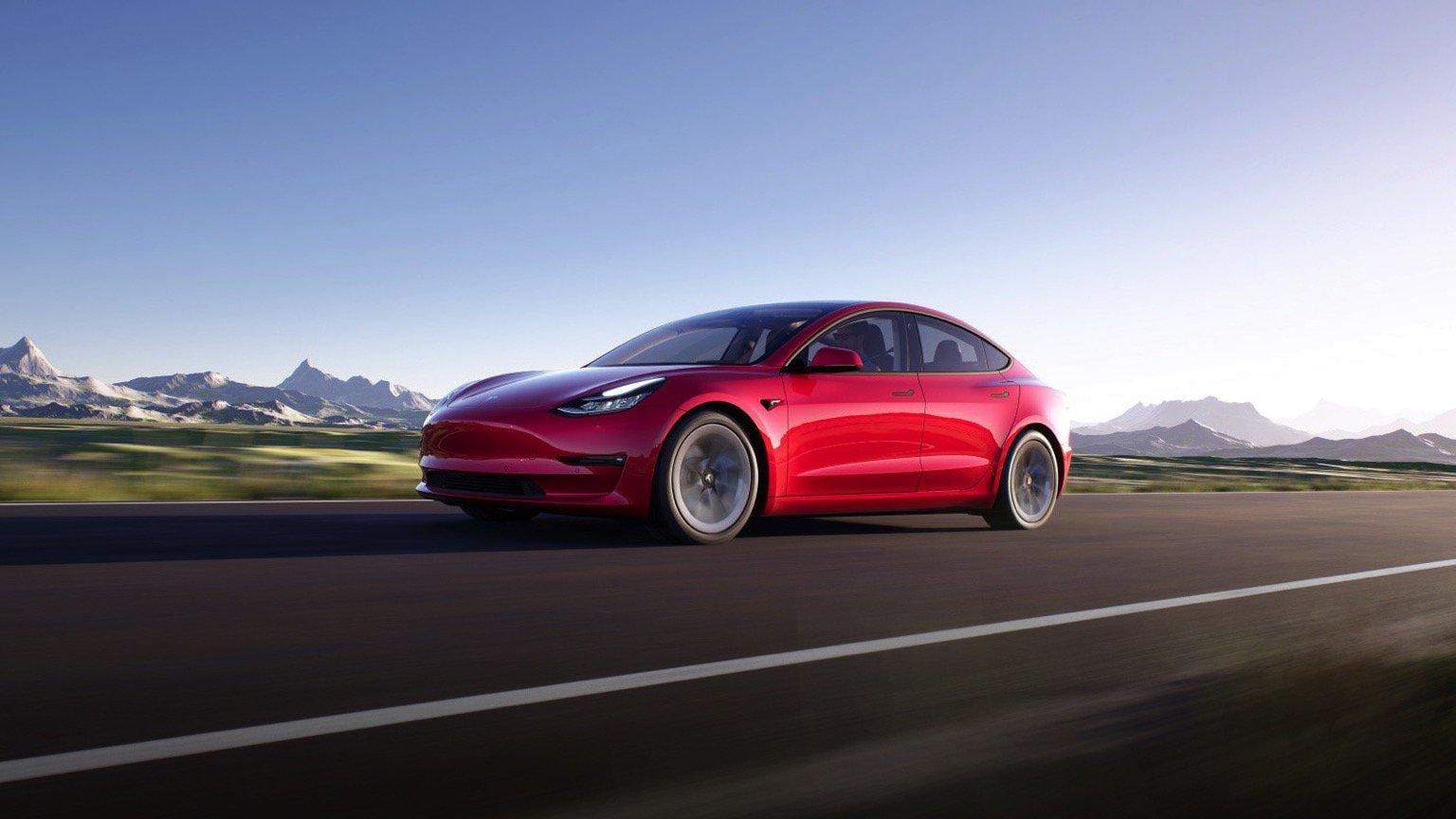New research by the AA shows that EV drivers can pay as much as 3.5 times more to charge their EVs by failing to shop around for the right tariff.
Around 14,000 Battery Electric Vehicles have been sold so far this year in Ireland, which represents an 83% increase compared to last year. In the same period, sales of petrol and diesel vehicles have fallen by 7.6% and 20.5% respectively. With the government continuing its support of EV sales by providing grants, many car buyers are opting to go electric for the first time.
However many EV owners are now paying multiples more than their neighbours by failing to shop around, AA research has found.
Price variations
Ireland’s best-selling EV this year is the Volkswagen iD.4, which has a 77kWh battery. Some EV drivers can pay up to €33.32 to fill the iD.4’s battery. However, their neighbour could be paying as little as €9.74 to charge up.
Consumers that haven’t shopped around and have stuck to a tariff such as Electric Ireland’s Pay As You Go tariff and are paying as much as €0.4327 per kWh since the 1st of October. To fill the iD.4’s battery at this rate, they would pay €33.32
Their next-door neighbour with a smart meter who has shopped around and got a night rate at €0.2155 only pays €16.59.
Savvy drivers with a smart meter can take advantage of a tariff like the ‘Night Boost’ from Electric Ireland. The rate between 2 am and 4 am is priced at €0.1265. This is the equivalent of paying €9.75 for a full charge, which is about 3.5 times less than the driver that failed to shop around.
With the average motorist in Ireland driving about 17,000km per year, choosing the right time to charge and which tariff to use could save them up to €1,000 per year in charging costs alone. As long as they are happy to ‘top up’ by about 80km range per night, a year’s worth of driving would cost them a mere €404.00.
Petrol and Diesel prices remain high
With the average price of petrol at €1.84 and diesel at €1.94 according to our survey this month, we know that the same distance driven by your equivalent diesel will be about €1,900, and about €2,300 for the petrol version. Even paying the highest rate of domestic electricity from October 1st, the same 17,000km is going to cost an EV driver €1,381, but this analysis shows that it could cost as little as €404.
Electric Ireland offers a ‘Night Boost’ tariff that gives a discounted rate of €0.1265 per kWh. Those with a smart meter can program their car to take advantage of this rate and charge only between the hours of 2 am and 4 am. This would be the equivalent of putting approximately 80km of driving range into the car every night for €1.90, which is about the same price as 1 litre of Diesel at today’s prices.
Those that don’t keep an eye on their electricity bills or when they charge their cars, may find themselves paying as much as €0.4327 per kWh since the 1st October. At this rate, the same 15kWh charge would cost €6.49, nearly 3.5 times more.
Shop around
The AA advises motorists to shop around and consider all of the options. Some homeowners that have solar on the roof may find themselves doing most of their driving for free using excess electricity from their panels. Electric Ireland has a rate that allows the users to elect a day on the weekend when electricity is free, although ‘unreasonable usage’ entitles them to remove that rate.
The other side of the coin is that those consumers with smart meters and low nighttime rates will typically pay a higher rate during the day, and may also face increases in the standing charge. So, the EV driver looking to save money on the rate at which they charge their cars also needs to look at switching other activities such as storage heaters, hot water tanks and washing machines to the night rate also. Otherwise, they may face the gains of EV charging at night being wiped out by increased costs during the day.
The current energy crisis is hitting families and businesses hard with vastly increased prices for energy at home and work. A series of price increases over the last year has hit them hard. We are unfortunately not immune to further increases.
Driving habits
Although drivers can save large sums of money by charging their EVs at night, another effective way to reduce bills is to alter driving habits. More gradual acceleration and taking advantage of Regenerative Braking can help save energy. Also, reducing top speed will help massively. For example, driving at 100km/h on the motorway can make a real difference to efficiency and energy consumption.
